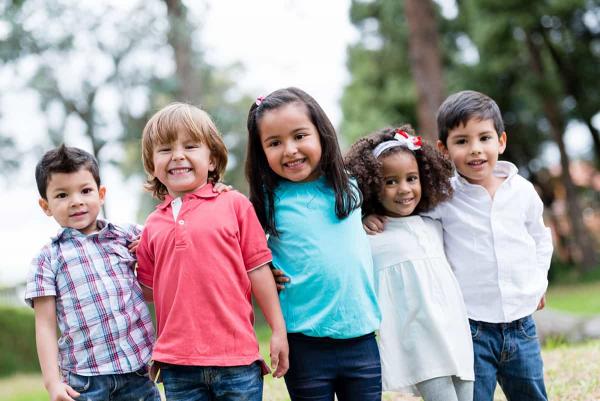
It's tempting, as a parent, to make life happy and easy for your children. After all, they are completely helpless when they are born, and rely on parents and caregivers for everything. Part of parenting is teaching children to be responsible and capable. There are many habits children need to develop. Here are six good habits every child needs.
1. Saying thank you
Expressing gratitude is a habit that will help kids throughout their lives. The habit of merely saying "thank you" will take root, and real feelings of gratitude will develop. I've met resistance when forcing children to say thanks, particularly when they are very young or dealing with strangers, so I don't push too hard with little kids. As you model polite manners and help kids write thank-you notes for gifts, they'll learn to show thankfulness. Grateful people are happy people; thus, the gift of gratitude is a good one to give.
2. Smiling
Children who are happy smile often. They are prompted to do so from their very first smiles, as parents encourage and coo in response. When children smile at others, they remind adults that there is good in the world. Happy children are respected and liked. I encourage my children to be friendly to everyone, old and young. Learning to give a simple smile can lift others up and spread happiness every day. I know my mood improves when I receive a smile from a child.
3. Waiting
Patience is hard for children, but studies show those who delay gratification are more successful in life. This starts with learning to wait. Not everyone can be first down the slide or first to receive a special treat. Children also can't monopolize the attention of teachers or adults. To practice this skill, take children to places where other children are, like parks and children's museums or zoos. Make sure your child has plenty of experience socializing with others and being in places where their needs can't always be met immediately. Patience is a lesson that must be taught often and, ironically, takes patience to teach.
4. Picking up after themselves
I know I'm not the only mother who finds herself saying "This is not a hotel, and I am not a maid" when I find myself picking up after the other five people who live in my house. Most people spend much of their lives living with others. I'm trying to teach my creative but messy teen to pick up her things not only in her room, but in common areas, as well. Cleaning up after themselves teaches children to be respectful of their belongings and think of the comfort of others. It also helps them learn that everyone must work together to make a home function well.
5. Drinking water
A healthy habit of water drinking will keep your child happy and his or her body strong. Water helps with overall mood, energy, good digestion and is the best beverage for children. If children drink water most of the time, they will not crave sweet beverages that lead to tooth decay and childhood obesity. If ever my kids say they have a headache or are not feeling well, my first prescription is a drink of water. They know that before they have lemonade or orange juice at a meal when it is served, they have to have a glass of water first.
6. Sharing
This is a difficult lesson to learn, but one that will cultivate a life of service and thinking of others. Toddlers are quite possessive of their toys, and young children seem to delight in only wanting a toy that someone else is playing with. Model sharing with your young children as you play with them, and expect it of older children. The phrase "Can I have the next turn, please" has worked well in our home. Knowing how to share helps kids to be generous, thoughtful and aware of others.
Some of these habits will take years to fully teach. If you start when your children are young, by the time they are young adults they will have cultivated these six good habits and several others, even if they don't always pick up their socks.

